
The Nintendo GameCube is a home video game console developed and marketed by Nintendo. It was released in Japan on September 14, 2001, in North America on November 18, 2001, in Europe on May 3, 2002, and in Australia on May 17, 2002. It is the successor to the Nintendo 64. As a sixth-generation console, the GameCube primarily competed with Sony's PlayStation 2, Sega's Dreamcast and Microsoft's Xbox.
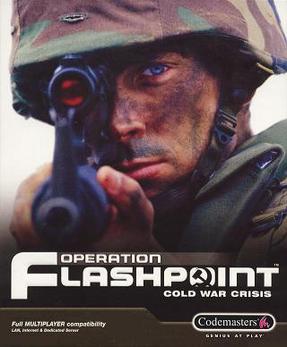
Operation Flashpoint: Cold War Crisis is a 2001 tactical shooter simulation video game developed by Bohemia Interactive Studio and published by Codemasters. Set during the Cold War in 1985, the game follows United States Armed Forces personnel in various combined arms roles as they combat a rogue Soviet Armed Forces field army invading the fictional island countries of Everon and Malden.
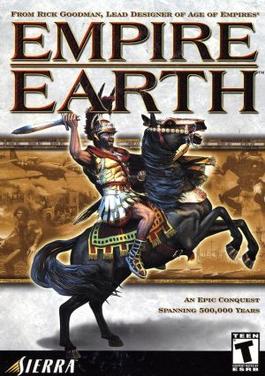
Empire Earth is a real-time strategy video game developed by Stainless Steel Studios and released on November 13, 2001. It is the first game in the Empire Earth series.
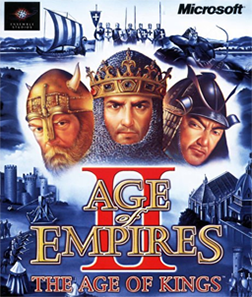
Age of Empires II: The Age of Kings is a real-time strategy video game developed by Ensemble Studios and published by Microsoft. Released in 1999 for Microsoft Windows and Macintosh in 2001, it is the second game in the Age of Empires series. The Age of Kings is set in the Middle Ages and contains 13 playable civilizations. Players aim to gather resources, which they use to build towns, create armies, and defeat their enemies. There are 5 historically based campaigns, which conscript the player to specialized and story-backed conditions, and 3 additional single-player game modes; multiplayer is also supported.

Tom Clancy's Rainbow Six: Rogue Spear is a 1999 tactical first-person shooter video game developed and published by Red Storm Entertainment for Microsoft Windows, with later ports for the Dreamcast, Mac OS, PlayStation, and Game Boy Advance. The sequel to 1998's Tom Clancy's Rainbow Six, it is the second installment in the Rainbow Six series and the last to be published by Red Storm before its acquisition by Ubi Soft in 2000. The game's plot follows the secret international counterterrorist organization Rainbow as they investigate nuclear terrorism in Eastern Europe.

Star Wars Rogue Squadron II: Rogue Leader is a flight action game co-developed by Factor 5 and LucasArts and is the second of the Rogue Squadron series. It was published by LucasArts and released as a launch title for the GameCube in North America on November 18, 2001, Europe on May 3, 2002, and Australia on May 17, 2002. Set in the fictional Star Wars galaxy, the game spans all three original trilogy Star Wars films. The player controls either Luke Skywalker or Wedge Antilles. As the game progresses, Skywalker, Antilles and the Rebel Alliance fight the Galactic Empire in ten missions across various planets.

CSI: Crime Scene Investigation is a video game based on the CSI: Crime Scene Investigation television series. The game was developed by Radical Entertainment, published by Ubi Soft, and was released for the PC in 2003. It was also ported by EPCConnect, and published by Aspyr on the Macintosh.

Kohan: Immortal Sovereigns is a real-time strategy video game developed by TimeGate Studios. It was published for Microsoft Windows by Strategy First in North America and Ubi Soft in Europe, and ported to Linux by Loki Software, both in 2001. With a high fantasy setting, the game follows immortal beings named Kohan. It features a lengthy single-player campaign and skirmish maps playable in multiplayer or against the AI. The gameplay focuses on controlling companies instead of individual soldiers, a mechanic praised by critics for eliminating micromanagement. A sequel, Kohan II: Kings of War, was released in 2004.
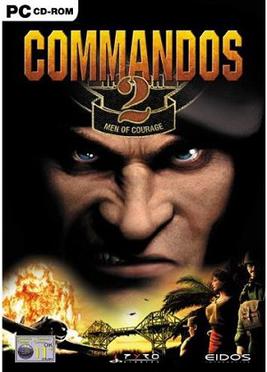
Commandos 2: Men of Courage is a real-time tactics video game, developed by Pyro Studios, published by Eidos Interactive, and released on September 20, 2001. It is a sequel to Commandos: Behind Enemy Lines and the second installment of the Commandos series, and is the only strategy game of the series to be designed not only for Microsoft Windows, but also for PlayStation 2 and Xbox. The game sees players taking control of a squad of commandos, along with various allied units, as they sneak behind enemy lines to accomplish various missions in World War II, between 1941 and 1944, that will help them to thwart the war efforts of the Germans and the Japanese. The game features several improvements to the gameplay from its predecessor, including the ability to use enemy weapons and explore interior locations, the inclusion of three new commandos, a number of new skills for the original six members along with their other abilities, and new pieces of equipment to help overcome the enemy.
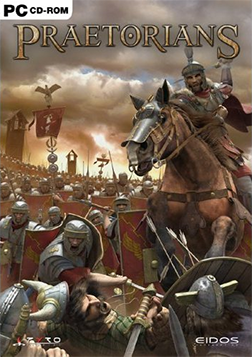
Praetorians is a 3D real-time tactics video game developed by Pyro Studios and published by Eidos Interactive in 2003, based on Julius Caesar's historical campaigns in Gaul and Britain, Crassus' battles in Parthia, and the events of Caesar's Civil War during the 1st century BC. The player controls either the Roman Republic, the Ptolemaic Kingdom, or a generic barbarian tribe based on the Helvetii, Gauls, and Celts.

Port Royale 2 is the sequel to the business simulation game Port Royale: Gold, Power and Pirates. It is set in the Caribbean during the 17th century. Created by Ascaron Entertainment in 2004, it combines a business simulator with real-time battles and towns that can be owned, built, developed or razed. A sequel, Port Royale 3: Pirates & Merchants, was released in 2012.
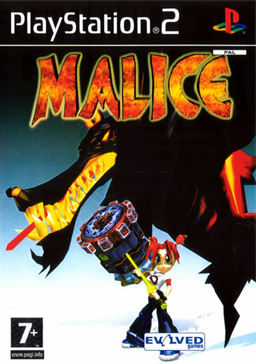
Malice is a platform game developed by Argonaut Games and published by Mud Duck Productions in North America and Evolved Games in Europe, and was released in 2004 for the Xbox and PlayStation 2.

Imperivm: Great Battles of Rome is a 2004 real-time strategy video game for Microsoft Windows. It is a sequel to the RTS/RPGs Celtic Kings: Rage of War and Imperivm II: The Punic Wars. The game, released in 2004, was developed by Haemimont Games together with FX Interactive. It was re-released on Steam on August 16, 2021.

Commandos 3: Destination Berlin is a real-time tactics video game and the third installment of the Commandos series. It was developed by Pyro Studios and published by Eidos Interactive in October 2003 for Windows, with a Mac OS X port releasing in June 2005 via publisher Feral Interactive. The game is the first in the series to use a true 3D engine as well as introduce deathmatch multiplayer mode.

The D.I.C.E. Awards is an annual awards show in the video game industry, and commonly referred to as the video game equivalent of the Academy Awards. The awards are arranged by the Academy of Interactive Arts & Sciences (AIAS) and held during the AIAS' annual D.I.C.E. Summit in Las Vegas. "D.I.C.E." is a backronym for "Design Innovate Communicate Entertain". The D.I.C.E. Awards recognizes games, individuals, and development teams that have contributed to the advancement of the multi-billion dollar worldwide entertainment software industry.
Nacon is a French video game publisher, holdings company and gaming peripherals manufacturer based in Lesquin. It designs and distributes gaming accessories, and publishes and distributes video games for various platforms. In 2020, Bigben Group was consolidated to form Nacon.

Nemesis of the Roman Empire is a real-time strategy role-playing video game developed by Haemimont Games and published by Enlight Software. The sequel to Celtic Kings: Rage of War, the game is set in the Punic Wars and allows the player to take control of one of four nations, as well as Hannibal the Great.
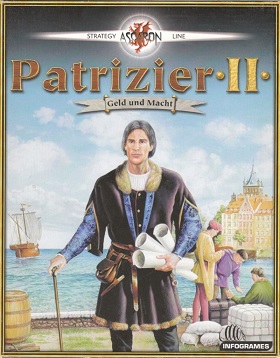
Patrician II: Quest for Power, entitled Patrizier 2: Geld und Macht in Germany, is the second video game from developer Ascaron in their Patrician series. The sequel to The Patrician, it is a game simulating trading, piracy, politics, and economy. An expansion pack, Patrizier 2: Aufschwung der Hanse, was released in Germany in 2001. A compilation release containing the main game and the expansion was released as Patrizier 2: Gold Edition in Germany in 2002 and as Patrician III: Rise of the Hanse internationally in 2003. A sequel, Patrician IV, was released in 2010.
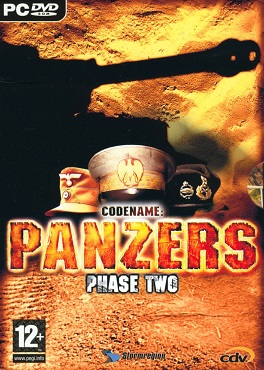
Codename: Panzers – Phase Two is a 2005 real-time tactics video game developed by the Hungarian studio StormRegion and published by cdv Software Entertainment. It is the sequel to Codename: Panzers – Phase One. The two games were followed by Codename: Panzers – Cold War.


















